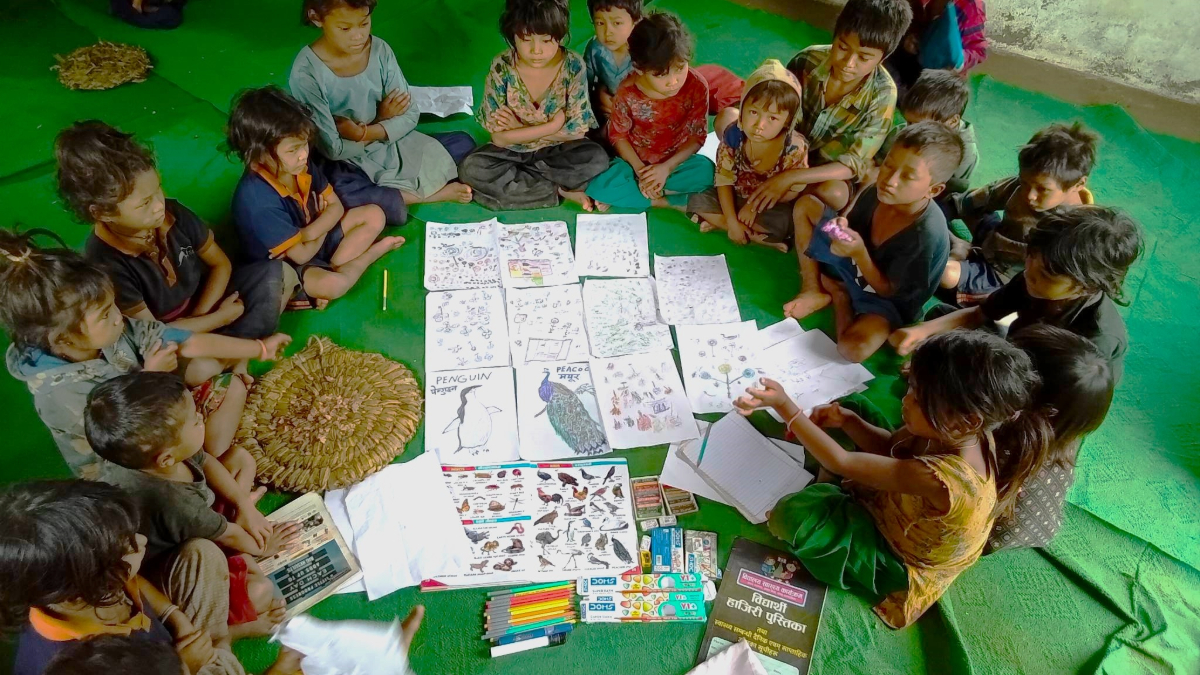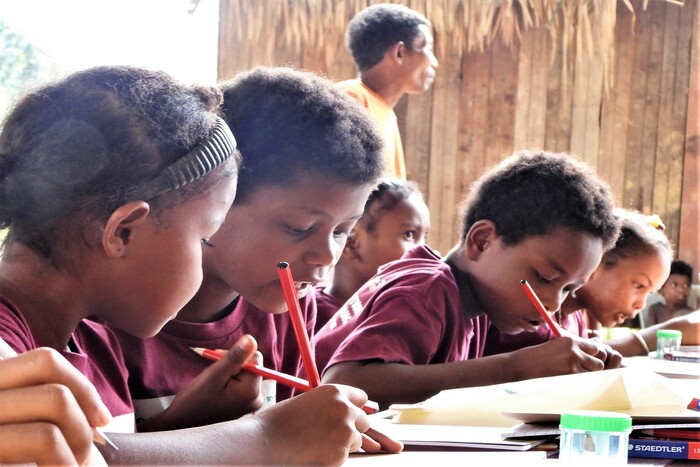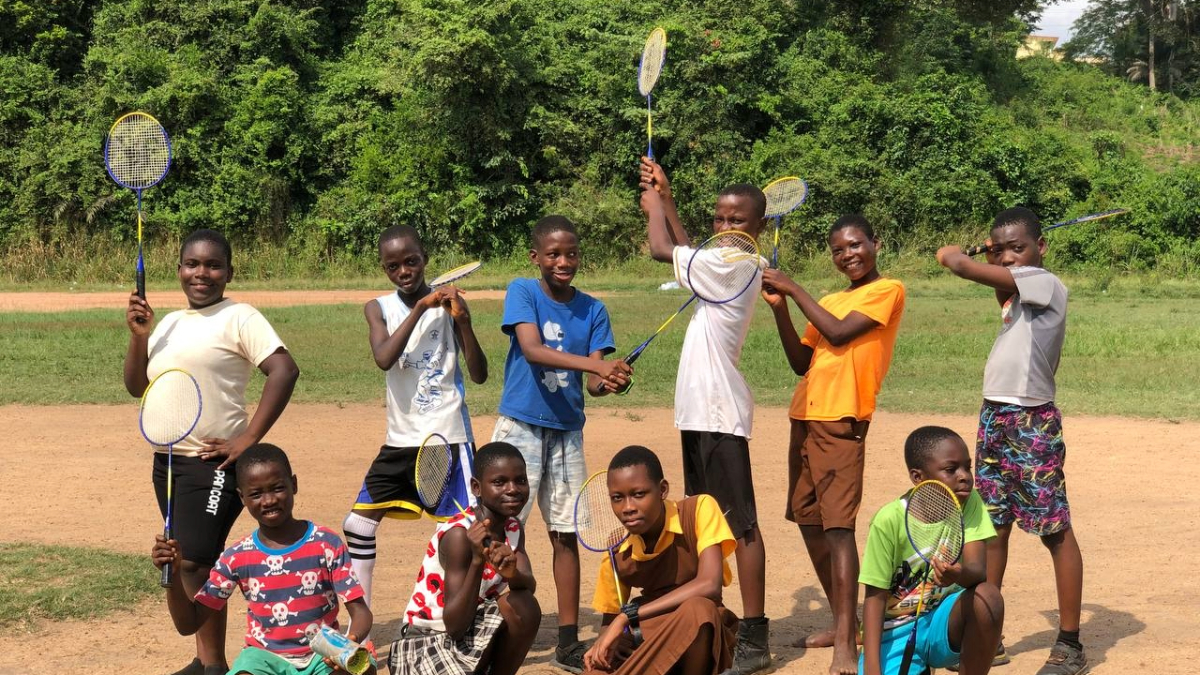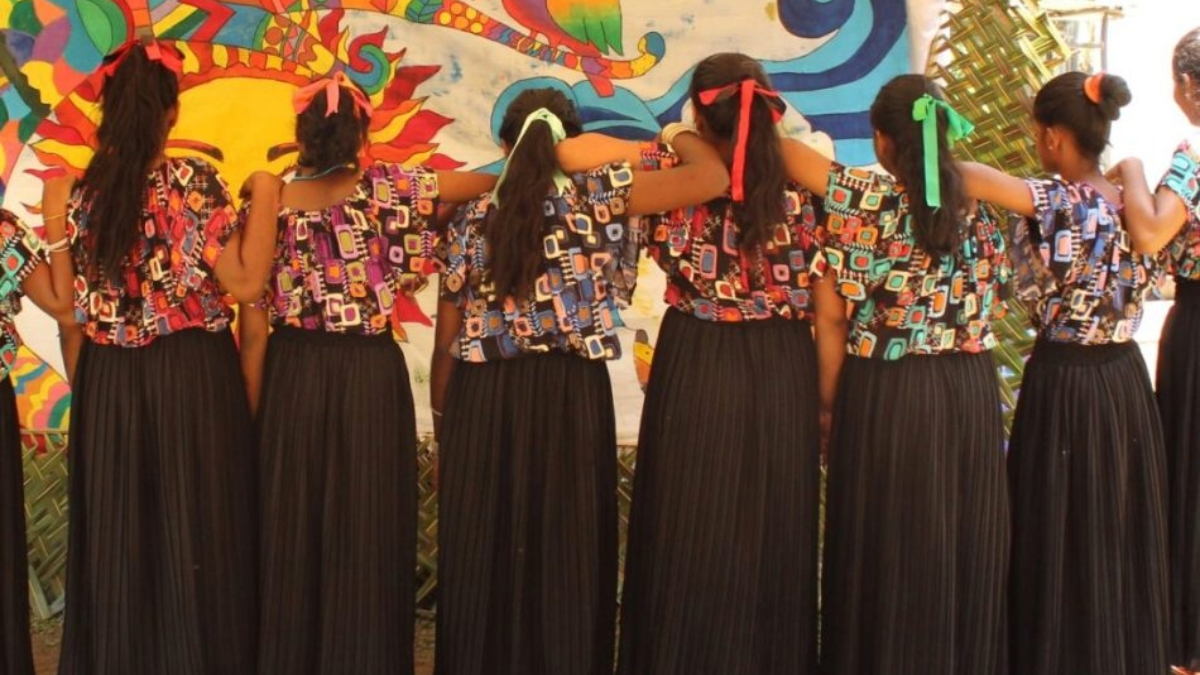In the remote and mountainous villages of Central Nepal, a community development collaboration between RYTHM Foundation and the NGO National Forum for Advocacy Nepal (NAFAN) is creating a story of positive change for the indigenous Chepang people.
The semi-nomadic tribe, one of South Asia’s 59 indigenous groups, is experiencing a positive shift as educational, health, and social programmes set up by proactive organisations in their remote communities gain momentum.
In these challenging terrains, where villages have long been labelled as “deprived,” our support for NAFAN’s transformative initiatives has led to encouraging outcomes.
Committed NGOs are overcoming challenging travel conditions to make a meaningful impact, implementing community development programmes that empower the Chepang with new skills, improved livelihoods, better health, and access to quality education.
Challenges for the Chepang People
Indigenous people such as the Chepang are pushed to the margins of modern society, facing challenges that hinder them from keeping up with the urban population in terms of livelihood and education.
In fact, the community is among the most impoverished, with over 90% living below the poverty line. They contend with food shortages and unsustainable agricultural practices, directly affecting the quality of their daily lives.
Due largely to their inaccessibility, community development programmes take deliberate planning. RYTHM and NAFAN unite through their Sustainable Community Project to help the Chepang bridge these gaps and overcome these challenges despite the region’s remote terrain.
Opening Classroom Doors for Schoolchildren
RYTHM believes in the long-term value of education in indigenous community development projects.
Among the Chepang, quality education is likewise an observable challenge, limiting opportunities for socioeconomic advancement of school-aged children and their families.
Guided by the foundation’s education agenda, the project aims to assist 250 beneficiaries over the three-year project (until mid-2024), including 180 girls and women aged between five and 30.
The milestones to reach include enrolling 99% of the children in school within two years and ensuring at least 60% attend school regularly by the third year.
The outlook has been promising. “We have observed various positive changes, especially among children who did not have the opportunity for an education,” NAFAN chairperson Bhola Bhattarai said.
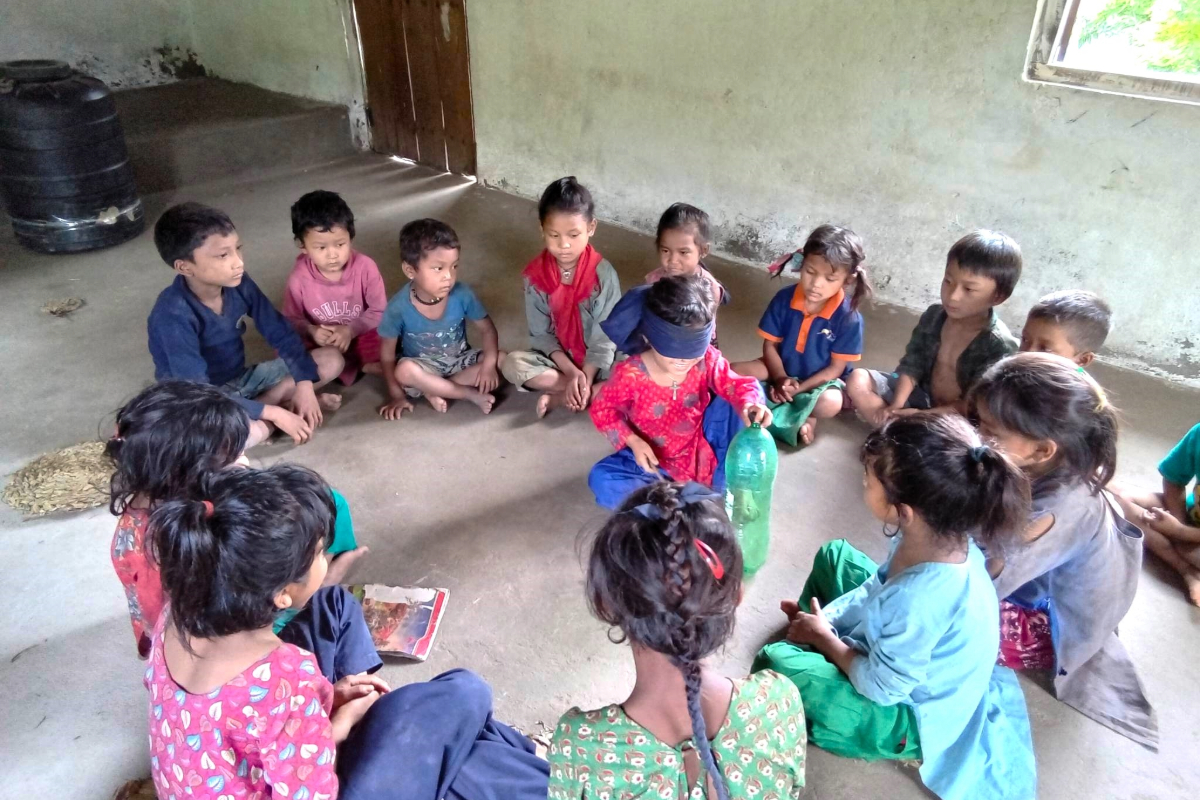
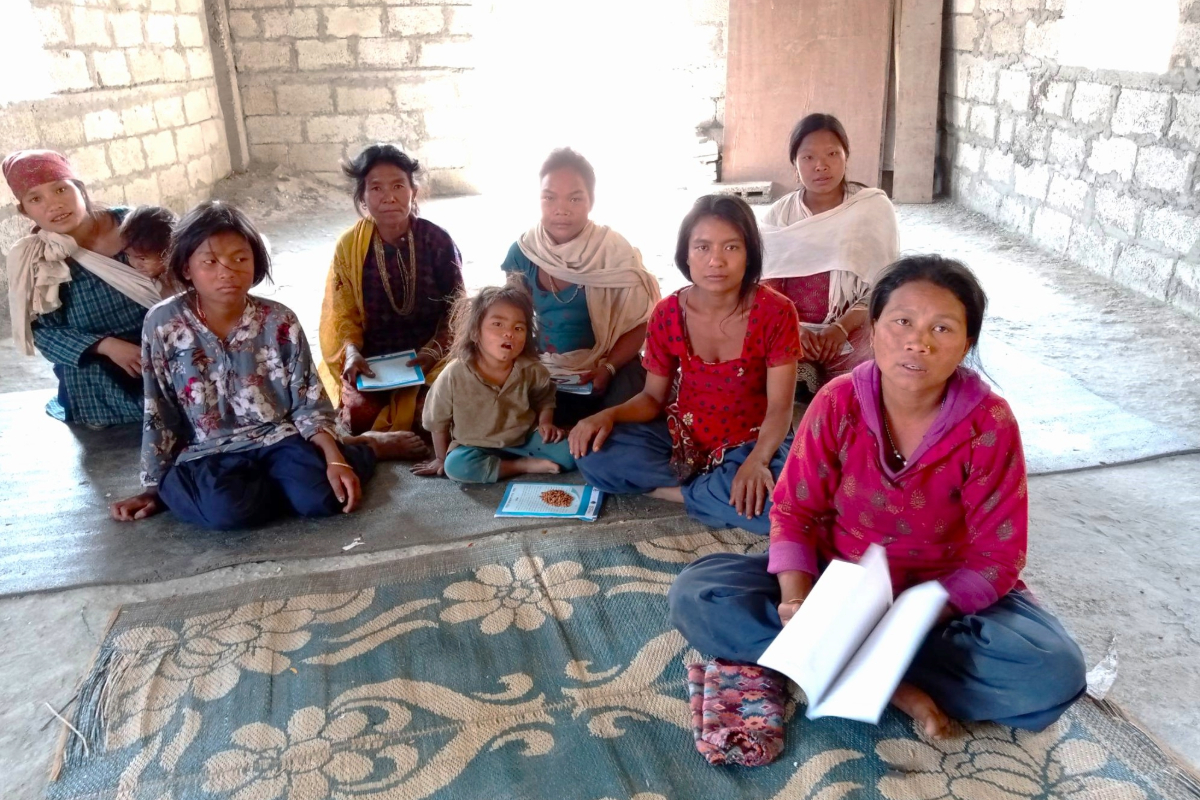
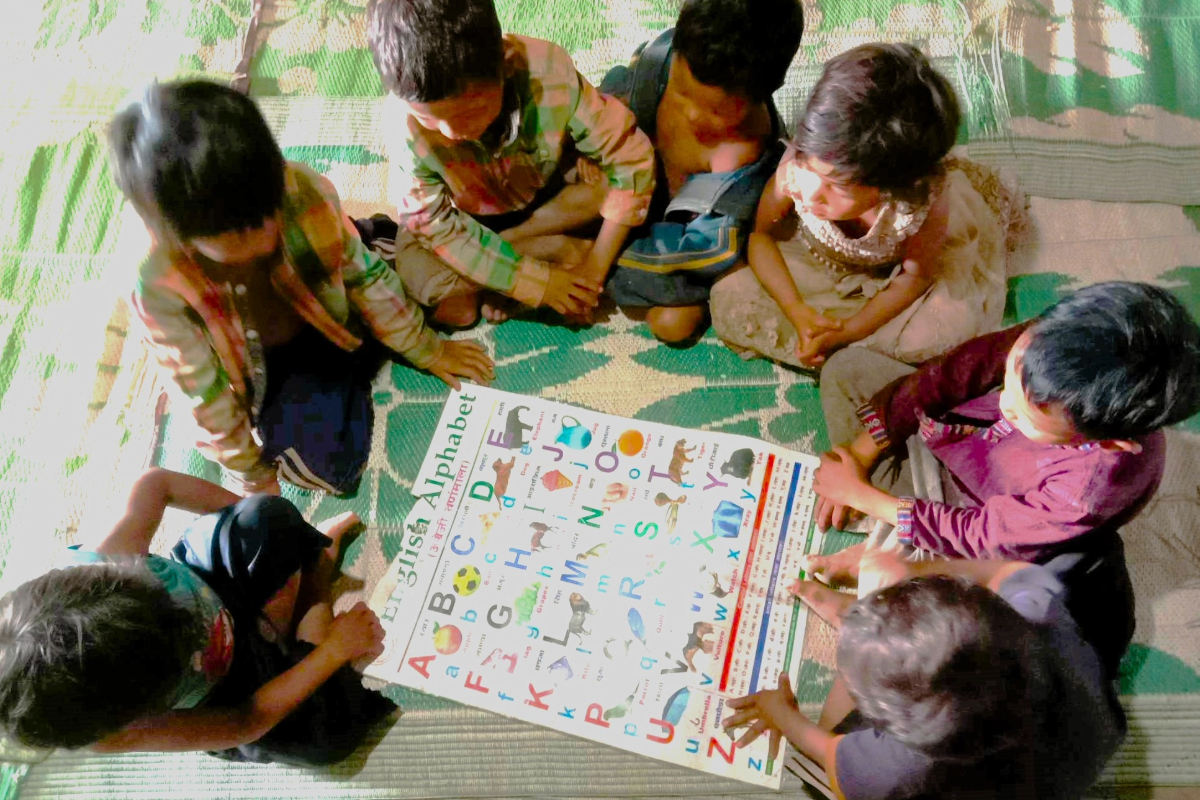
Expanding Transformative Education
Our Sustainable Community Project partnership with NAFAN started in four villages in the Makawanpur district – Damrang, Hiurang, Chamanti, and Hatikhola. Due to its success, the project has now reached even more Chepang communities.
“The education programme supported by RYTHM Foundation has now expanded to a fifth village. We are getting requests from more families to school their children,” Bhola said.
The strides made in just 18 months are evident, with 49 children also transitioning into formal education. “Their progress has been impressive, with more young beneficiaries developing a culture of reading and writing.”
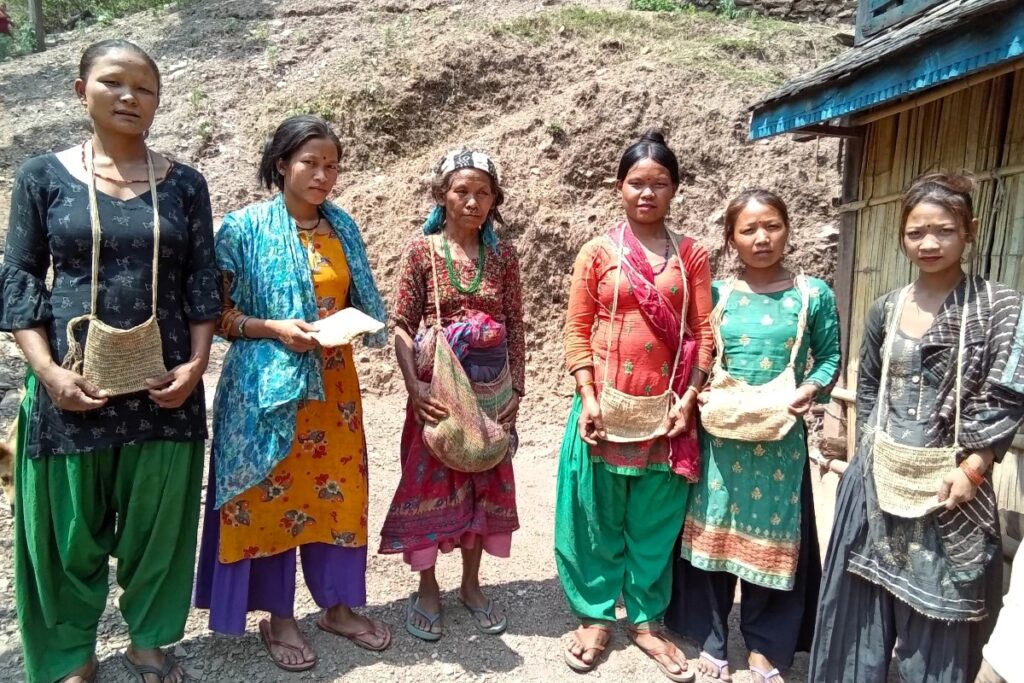
Empowering Women and Young Girls
The impact of the collaboration extends beyond the classroom. NAFAN’s holistic approach actively engages families, especially women, recognising their crucial role in shaping the community’s destiny.
As Bhola emphasises, “Women are showing a remarkable commitment to securing a better future for the children.”
NAFAN’s initiatives are also influencing a shift in the prevalent issue of child marriages among the Chepang. The emphasis on reproductive health education, sanitation, and overall well-being reflects a comprehensive approach to tackling deeply ingrained societal norms.
“After engaging with them, more girls are beginning to understand that they do not have to marry early,” Bhola added.
Lasting Impact of Indigenous Community Development Projects
The RYTHM-NAFAN partnership has left an enduring impact, emerging as a beacon of hope for the marginalised Chepang. It also shows that sustained efforts and collective commitments can create achievable transformations.
Indigenous people are part of the United Nations’s 2030 Agenda for Sustainable Development, a framework that guides RYTHM Foundation.
RYTHM’s community development programmes strive to align with the UN’s Sustainable Development goals, many of which are relevant to the Chepang people’s needs. Explore our impact stories to learn more about RYTHM’s global community development programmes.

